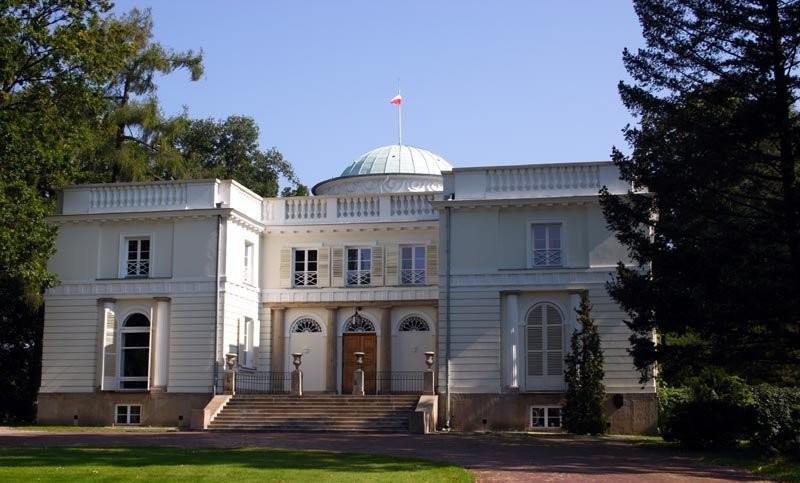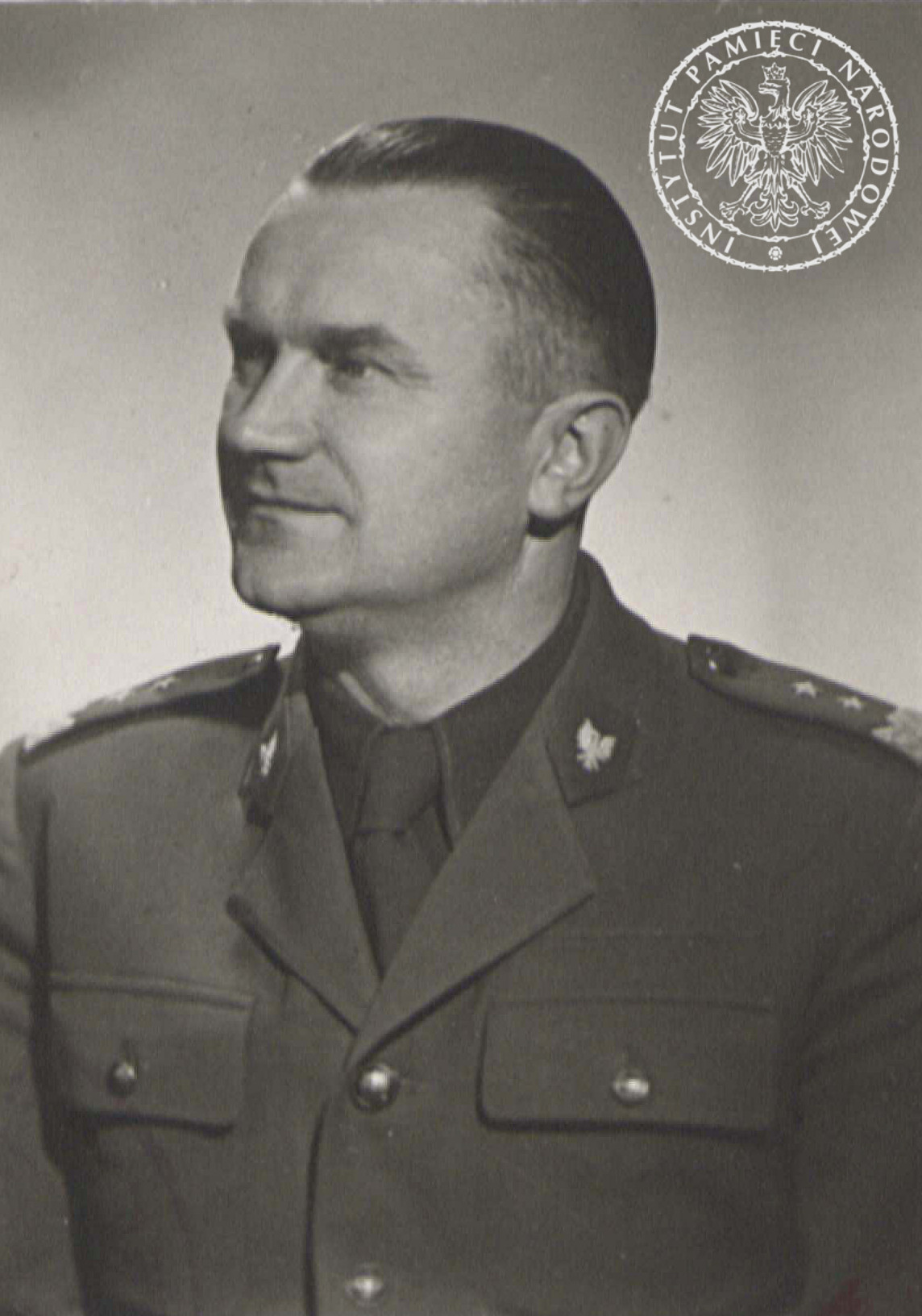|
Puławians
The Puławians, or the Puławy faction (Polish: ''Puławianie'', ''frakcja puławska''), as they came to be informally dubbed, comprised one of two principal communist groupings in Stalinist Poland which – in the spring of 1956, following the death of Bolesław Bierut – vied for power within the leadership of the Polish United Workers' Party (the ''PZPR''). The Puławians were known, during Poland's destalinization process, as reformists. The other – a hardliner – grouping were dubbed the Natolinians (''Natolińczycy''), or the Natolin faction. The Puławy faction included many communists of Jewish extraction Among the most prominent were Roman Zambrowski and Leon Kasman. Others included Stefan Staszewski and Adam Schaff. However, the Puławians also included prominent party and state functionaries of Polish ethnicity such as Edward Gierek, Piotr Jaroszewicz, Henryk Jabłoński, Mieczysław Rakowski, Andrzej Werblan, Janusz Zarzycki, Władysław Matwin, Adam Rapack ... [...More Info...] [...Related Items...] OR: [Wikipedia] [Google] [Baidu] |
Natolinians
The Natolinians, or the Natolinian faction (Polish language, Polish: ''Natolińczycy'', ''frakcja natolińska''), were a grouping within the leadership of the communist Polish United Workers' Party (the ''PZPR''). Formed around 1956, shortly after the 20th Congress of the Communist Party of the Soviet Union, it was named after the palace where its meetings were held, in Warsaw's Natolin Park and Palace, Natolin district. The main opposition to the Natolinians were the reformist Puławianie, Puławians, who included many PZPR members of History of the Jews in Poland, Jewish extraction. The Natolinians opposed the post-Stalinism, Stalinist liberalization program (the Polish October "thaw") and, as part of their strategy to seek power, voiced simplistic nationalist and anti-Soviet slogans. The best-known Natolinians included Franciszek Jóźwiak, , Zenon Nowak, Aleksander Zawadzki, Franciszek Mazur, , Kazimierz Mijal, Władysław Dworakowski, and Hilary Chełchowski. The Natolinian f ... [...More Info...] [...Related Items...] OR: [Wikipedia] [Google] [Baidu] |
Polish United Workers' Party
The Polish United Workers' Party (, ), commonly abbreviated to PZPR, was the communist party which ruled the Polish People's Republic as a one-party state from 1948 to 1989. The PZPR had led two other legally permitted subordinate minor parties together as the Front of National Unity and later Patriotic Movement for National Rebirth. Ideologically, it was based on the theories of Marxism-Leninism, with a strong emphasis on left-wing nationalism. The Polish United Workers' Party had total control over public institutions in the country as well as the Polish People's Army, the UB and SB security agencies, the Citizens' Militia (MO) police force and the media. The falsified 1947 Polish legislative election granted the Communist Polish Workers' Party (PPR) complete political authority in post- war Poland. The PZPR was founded forthwith in December 1948 through the unification of the PPR and the Polish Socialist Party (PPS). From 1952 onward, the position of "First Secretary ... [...More Info...] [...Related Items...] OR: [Wikipedia] [Google] [Baidu] |
Roman Zambrowski
Roman Zambrowski (15 July 1909 – 19 August 1977) was a Polish communist politician. Career Zambrowski was born into a Jewish family in Warsaw. He was a member of the Communist Party of Poland (1928–1938) and of the Central Committee of the Young Communist League of Poland (1930–1938). During World War II in the Soviet Union, he was one of the main organisers and leaders of the Union of Polish Patriots (ZPP) from 1943 and of the Central Bureau Communists of Poland (CBKP) in 1944. He was the head of the Political and Educational Leadership of the First Polish Army (1944–1945). From 1944, Zambrowski was a member and one of the leaders of the Polish Workers' Party (PPR) and then, from 1948 to 1968, of the Polish United Workers' Party (PZPR). He was in the PZPR's Central Committee (1948–1964) and held the office of the secretary of the Central Committee (1948–1954 and 1956–1963). He was in the PZPR's Politburo from 1948 to 1963. In 1956, he was a leader of the f ... [...More Info...] [...Related Items...] OR: [Wikipedia] [Google] [Baidu] |
Bolesław Bierut
Bolesław Bierut (; 18 April 1892 – 12 March 1956) was a Polish communist activist and politician, leader of History of Poland (1945–1989), communist-ruled Poland from 1947 until 1956. He was President of the State National Council from 1944 to 1947, President of Poland from 1947 to 1952, General Secretary of the Communist Party, General Secretary of the Central Committee of the Polish United Workers' Party, Central Committee of the Polish United Workers' Party from 1948 to 1956, and Prime Minister of Poland from 1952 to 1954. Bierut is believed to have worked as an NKVD informant or agent prior to 1945, although his relationship with the Soviet agency has been a subject of debate among historians. As communist leader, he implemented aspects of the Stalinist system in Poland.Jerzy Eisler, ''Siedmiu wspaniałych. Poczet pierwszych sekretarzy KC PZPR'' [The Magnificent Seven: first secretaries of the PZPR], pp. 32–35. Wydawnictwo Czerwone i Czarne, Warszawa 2014, . Together wi ... [...More Info...] [...Related Items...] OR: [Wikipedia] [Google] [Baidu] |
Adam Rapacki
Adam Rapacki (24 December 1909 – 10 October 1970) was a leading Polish Communist politician and diplomat from 1947 to 1968. He started in the socialist movement but in 1948 joined the Central Committee of the new Polish United Workers' Party (PZPR), and became a member of its Politburo. It had very close ties to the Kremlin. He is best known for his 1957 proposal for the creation of nuclear-free zones in Europe; it was never adopted. He maintained good relations with East Germany while warning against West German expansionism. Piotr Wandycz considers that he was well educated, cosmopolitan, pragmatic, liberal and ambitious, and imbued with a sense of patriotism and belief in cooperation with the left in Western Europe. Biography Rapacki was born by Marian Rapacki and Maria Rapacka in Lemberg, Austria-Hungary (modern Lviv, Ukraine) on 24 December 1909. Due the start of World War I, he and his parents moved to Piotrków Trybunalski, and to Warsaw in 1919. During his early life ... [...More Info...] [...Related Items...] OR: [Wikipedia] [Google] [Baidu] |
Władysław Matwin
Władysław Matwin (17 July 1916 – 21 October 2012) was a Polish politician, journalist and mathematician who was one of the pioneers of computer science in Poland. Biography After his parents divorced, he and his mother found themselves in Poznań, where he studied economics. At that time he belonged to the Communist Party of Poland and the Young Communist League of Poland (KZMP). He was secretary of the KZMP District Committee. In January 1935, he was arrested for Communist activities and sentenced to three years in prison. After being released, he went to Czechoslovakia, where he studied chemistry in Brno. He returned to Poland in the spring of 1939. He volunteered to join the army, but was considered a dangerous criminal and was banned from serving in the Polish army. During World War II he stayed on the territory of the Soviet Union. First, he worked as a miner and later studied at the Metallurgy Institute at night. For a short time he was in the Red Army, from which - du ... [...More Info...] [...Related Items...] OR: [Wikipedia] [Google] [Baidu] |
Janusz Zarzycki
Janusz is a masculine Polish given name. It is also the shortened form of January and Januarius. People * Janusz Akermann (born 1957), Polish painter * Janusz Bardach, Polish gulag survivor and physician * Janusz Bielański, Roman Catholic priest * Janusz Bojarski (born 1956), Polish general * Janusz Bokszczanin (1894–1973), Polish Army colonel * Janusz Brzozowski (1935–2019), Polish-Canadian computer scientist *Janusz Christa (1934–2008), Polish author of comic books *Janusz Domaniewski (1891–1954), Polish ornithologist *Janusz Gajos, Polish actor *Janusz Gaudyn (1935–1984), Polish physician, writer and poet * Janusz Głowacki (1938–2017), Polish-American author and screenwriter *Janusz Grabowski (born 1955), Polish mathematician *Janusz Janowski (born 1965), Polish painter, jazz drummer and art theorist *Janusz Kamiński (born 1959), Polish cinematographer and film director *Janusz Korczak (Henryk Goldszmit), Polish-Jewish children's author, pediatrician, and child ... [...More Info...] [...Related Items...] OR: [Wikipedia] [Google] [Baidu] |
Andrzej Werblan
Andrzej is the Polish form of the given name Andrew. Notable individuals with the given name Andrzej * Andrzej Bartkowiak (born 1950), Polish film director and cinematographer * Andrzej Bobola, S.J. (1591–1657), Polish saint, missionary and martyr * Andrzej Chyra (born 1964), Polish actor * Andrzej Czarniak (1931–1985), Polish alpine skier * Andrzej Domański (born 1981), Polish economist, and politician * Andrzej Duda (born 1972), Polish 6th president * Andrzej Jajszczyk, Polish scientist * Andrzej Kmicic, fictional protagonist of Henryk Sienkiewicz's novel ''The Deluge'' * Andrzej Kokowski (born 1953), Polish archaeologist * Andrzej Krauze (born 1947), Polish-British cartoonist and illustrator * Andrzej Leder (born 1960), Polish philosopher and psychotherapist * Andrzej Mazurczak (born 1993), Polish basketball player * Andrzej Mleczko (born 1949), Polish illustrator * Andrzej Nowacki (born 1953), Polish artist * Andrzej Paczkowski (born 1938), Polish historian * Sir Andrz ... [...More Info...] [...Related Items...] OR: [Wikipedia] [Google] [Baidu] |
Henryk Jabłoński
Henryk Jan Jabłoński (; 27 December 1909 – 27 January 2003) was a Polish historian and politician. After 1948, he became a politician of the ruling Polish United Workers' Party, as well as a historian and professor at Warsaw University. He served as head of state of the People's Republic of Poland between 1972 and 1985. Life and career Jabłoński was born in Stary Waliszew in the Warsaw Governorate of Congress Poland. From 1931, he was a member of the Polish Socialist Party (PPS). During World War II he fought in the Battles of Narvik, battle of Narvik (Norway) and then joined the French Resistance. In 1945 Jabłoński become a member of the State National Council (KRN), and during the years 1946 and 1948 he had high functions in the PPS (chairman of Central State Committee and its vice-leader). He approved joining the PPS with the Polish Workers' Party (PPR, ''Polska Partia Robotnicza''). From 1947 to 1972, he was a deputy to the Sejm. In 1948 he was appointed professor at ... [...More Info...] [...Related Items...] OR: [Wikipedia] [Google] [Baidu] |
Piotr Jaroszewicz
Piotr Jaroszewicz (; 8 October 1909 – 1 September 1992) was a post-World War II Poland, Polish political figure. He served as the Prime Minister of the Republic of Poland, Prime Minister of Poland between 1970 and 1980. After he was forced out of office, he lived quietly in a suburb of Warsaw until his murder in 1992. Life and career Jaroszewicz was born on 8 October 1909 in Nieswiez, Nieśwież, in the Minsk Governorate of the Russian Empire (present-day Belarus). After finishing secondary school in Jasło, he started working as a teacher and headmaster in Garwolin. After the outbreak of World War II and the Nazi-Soviet alliance established by the Molotov–Ribbentrop Pact, he moved to the Soviet-occupied zone of Poland. It has been claimed that he was a headmaster at Pinsk gymnasium. However, on 10 July 1940, he was deported to Slobodka, Krasnoborski region, Arkhangelsk, from Stolin together with his first wife, Oksana Gregorevna (born in Salov/Calow 1914) and daughter Olila ... [...More Info...] [...Related Items...] OR: [Wikipedia] [Google] [Baidu] |





